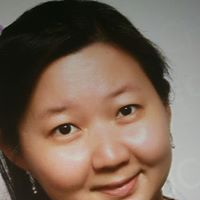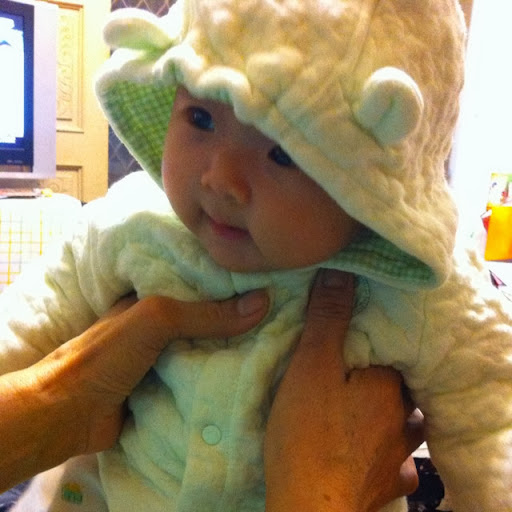Ching E Lin
age ~66
from Frisco, TX
- Also known as:
-
- Ching Evue Lin
- Ching Mei Lin
- Jerry Lin
- Eyue Ching Lin
- Evue Ching Lin
- Ching E Eyue
- Chingeyue Lin
- Eric Lin
- Lin Eyue
- Phone and address:
-
12204 Latigo Dr, Frisco, TX 75035
(972)6901445
Ching Lin Phones & Addresses
- 12204 Latigo Dr, Frisco, TX 75035 • (972)6901445
- Allen, TX
- Plano, TX
- Richardson, TX
- Dallas, TX
- San Jose, CA
- Garland, TX
Us Patents
-
System To Control The Output Current With Temperature Through A Controllable Current Limiting Circuit
view source -
US Patent:63077264, Oct 23, 2001
-
Filed:Oct 1, 1999
-
Appl. No.:9/410841
-
Inventors:Andrew Marshall - Dallas TX
Ching L. Lin - Richardson TX
Jingwei Xu - Dallas TX -
Assignee:Texas Instruments Incorporated - Dallas TX
-
International Classification:H02H 300
-
US Classification:361 939
-
Abstract:A controllable current limiting circuit (30) that, when used with a low precision current limiting circuit (10), will limit the current of the output driver transistor M1 to a relatively flat response over a broad temperature range. The current is limited by setting the voltage across a resistance, R1, to a certain value. To overcome temperature induced variations in this voltage, the compensation circuit (20) generates a current that varies with temperature. This current is injected into a terminal of the resistance, R1. This current is generated in such as a manner to ensure that the current flowing in the output driver transistor M1 is relatively constant over a wide temperature range.
Medicine Doctors

Ching F. Lin
view sourceSpecialties:
Anesthesiology
Work:
Westchester Anesthesiologists
701 N Broadway, Tarrytown, NY 10591
(914)4285454 (phone), (914)2536900 (fax)
701 N Broadway, Tarrytown, NY 10591
(914)4285454 (phone), (914)2536900 (fax)
Education:
Medical School
Natl Taiwan Univ Coll of Med, Taipei, Taiwan (385 02 Prior 1/71)
Graduated: 1973
Natl Taiwan Univ Coll of Med, Taipei, Taiwan (385 02 Prior 1/71)
Graduated: 1973
Languages:
English
Description:
Dr. Lin graduated from the Natl Taiwan Univ Coll of Med, Taipei, Taiwan (385 02 Prior 1/71) in 1973. He works in Sleepy Hollow, NY and specializes in Anesthesiology. Dr. Lin is affiliated with Phelps Memorial Hospital Center.

Ching Ho Lin
view sourceSpecialties:
Obstetrics & Gynecology
Education:
National Taiwan University (1965)
Name / Title
Company / Classification
Phones & Addresses
Director, Secretary
FOUR SEASONS CHORAL SOCIETY INC
Landscape Services
Landscape Services
PO Box 171113, Arlington, TX 76003
President
Dallas/Fort Worth National Taiwan University Alumni Association
5332 Tate Ave, Plano, TX 75093
1200 Coit Rd, Plano, TX 75075
1200 Coit Rd, Plano, TX 75075
Director
TARRANT COUNTY LUNAR NEW YEAR CELEBRATION, INC
1170 Corporate Dr W STE 204, Arlington, TX 76006
6109 Leagrove Ct, Arlington, TX 76016
6109 Leagrove Ct, Arlington, TX 76016
President,Director
PACIFIC CASCADE CO., LTD
DIRECTOR, Director , T
LUFAM MANAGEMENT NO 1 INC
741 Frst Bnd Dr, Plano, TX 75025
1 Galleria Tower 13355 Noel Rd, Dallas, TX 75240
1 Galleria Tower 13355 Noel Rd, Dallas, TX 75240
Director, Treasurer, Director , T
LUFAM MANAGEMENT NO 2 INC
741 Frst Bnd Dr, Plano, TX 75025
1 Galleria Tower 13355 Noel Rd, Dallas, TX 75240
1 Galleria Tower 13355 Noel Rd, Dallas, TX 75240
Resumes

Ching Yu Lin
view source
Inside Sales Manager
view sourceWork:
Inside Sales Manager

Ching Yi Lin
view sourceSkills:
Lin

Ching Wen Lin
view source
Ching Shih Lin
view source
Ching Lin
view source
Business Consultant At Linho Consulting
view sourceLocation:
United States

Ching Lin San Jose, CA
view sourceWork:
SVTC Technologies LLC
Mar 2007 to 2000
Principal Equipment Maintenance Technician Cypress Semiconductor
San Jose, CA
Nov 1990 to Mar 2007
Principal Equipment Maintenance Technician Cypress Semiconductor
San Jose, CA
Nov 1987 to Nov 1990
Equipment Maintenance Technician Cypress Semiconductor
San Jose, CA
Nov 1985 to Nov 1987
Equipment Specialist Mostek Coperation
Dallas, TX
Aug 1984 to May 1985
Fab Operator Lei Ban Industrial Co
Mar 1981 to Mar 1984
Maintenance Technician
Mar 2007 to 2000
Principal Equipment Maintenance Technician Cypress Semiconductor
San Jose, CA
Nov 1990 to Mar 2007
Principal Equipment Maintenance Technician Cypress Semiconductor
San Jose, CA
Nov 1987 to Nov 1990
Equipment Maintenance Technician Cypress Semiconductor
San Jose, CA
Nov 1985 to Nov 1987
Equipment Specialist Mostek Coperation
Dallas, TX
Aug 1984 to May 1985
Fab Operator Lei Ban Industrial Co
Mar 1981 to Mar 1984
Maintenance Technician
Education:
National Taipei Institute of Technology
1975 to 1980
BS in Electronics Engineering
1975 to 1980
BS in Electronics Engineering
Classmates

Auburn University - Gradu...
view sourceGraduates:
Ching Lin (1970-1983),
Dana Jonas (1991-1993),
Ronald Cave (1982-1987),
Lavonia Garrett (1990-1992)
Dana Jonas (1991-1993),
Ronald Cave (1982-1987),
Lavonia Garrett (1990-1992)

The Stony Brook School, S...
view sourceGraduates:
ching Lin (1987-1991),
Bruce Weaber (1972-1976),
Lori Young (1988-1990),
Kimberley Acker (1974-1978)
Bruce Weaber (1972-1976),
Lori Young (1988-1990),
Kimberley Acker (1974-1978)
Myspace
Youtube
Flickr

Ching Hui Lin
view source
Ching Siau Lin
view source
Ching Ching Lin
view source
Lee Ching Lin Rita
view source
Ching Wen Lin
view source
Ching Yang Lin
view source
Nathan Ching Lin
view source
Ching Yuet Lin
view sourceGoogleplus

Ching Lin
Lived:
Arlington, Texas
Education:
Sam Houston High School
About:
Hey guys.
Tagline:
I love TENNIS :DDD
Bragging Rights:
Having a good nap

Ching Lin

Ching Lin

Ching Lin

Ching Lin

Ching Lin

Ching Lin

Ching Lin
News

Brain injury may boost stroke risk
view source- For the study, published in the July 28 online edition of Stroke, a team led by Herng-Ching Lin, a professor at Taipei Medical University, collected data on 23,199 people who suffered a traumatic brain injury between 2001 and 2003. They compared these patients with 69,597 patients without traumatic
- Date: Jul 30, 2011
- Category: Health
- Source: Google
Get Report for Ching E Lin from Frisco, TX, age ~66
![Missy Elliott - Ching-A-Ling [Official Music Video] Missy Elliott - Ching-A-Ling [Official Music Video]](https://i.ytimg.com/vi/Q33ujOhLV-E/hq720.jpg?sqp=-oaymwEcCNAFEJQDSFTyq4qpAw4IARUAAIhCGAFwAcABBg==&rs=AOn4CLCLUCEIq2FrYuLWwJ_7ejRs3kuVRA)












